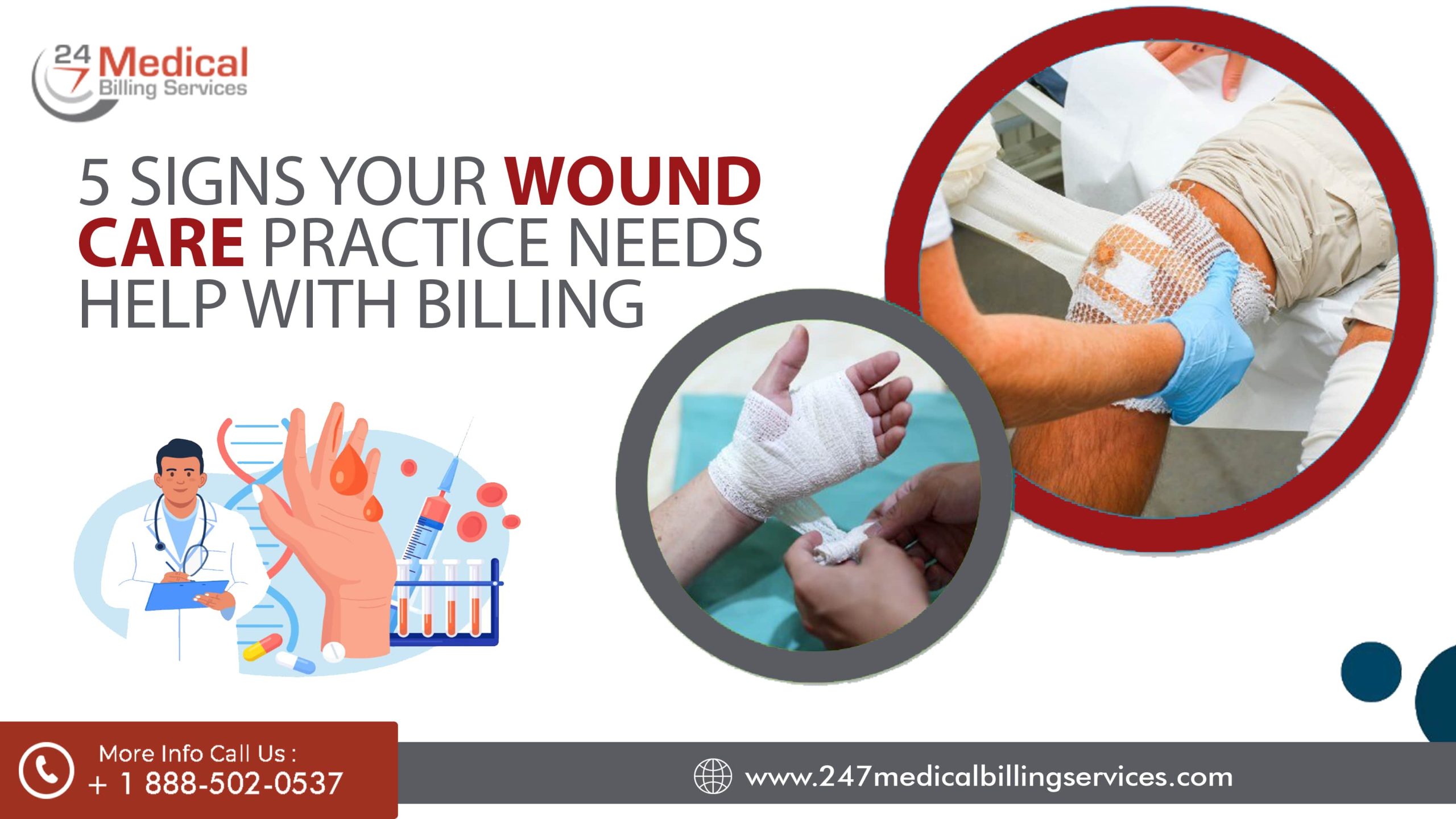
5 Signs Your Wound Care Practice Needs Help With Billing
Identifying the early signs that your wound care practice needs help with billing is crucial for maintaining financial stability and ensuring smooth operations. When billing issues are left unaddressed, they can lead to significant revenue loss, increased claim denials, and patient dissatisfaction. By recognizing these warning signs at the earliest stage, your practice can implement effective solutions to mitigate these problems, streamline billing processes, and enhance overall financial health. Let’s have a look at these warning signs your wound care practice needs help with billing :
1. Haphazard Documentation
Accurate and thorough documentation is crucial in wound care billing. If your wound care practice's documentation process is disorganized or inconsistent, it can lead to significant billing issues. Proper documentation ensures that every patient visit, procedure, and follow-up is accurately recorded, essential for correct billing and claims submission. Haphazard documentation can result in:- Incomplete Records: Missing details can lead to claim denials or underpayments, as insurers need comprehensive information to process claims.
- Errors and Omissions: Inaccurate or missing information can cause billing errors, delaying payments and requiring additional rectification time.
- Compliance Issues: Inconsistent documentation may fail to meet regulatory requirements, increasing the risk of audits and penalties.
2. Lack of Protection Against RAC Audits
Recovery Audit Contractor (RAC) audits are designed to identify and correct improper Medicare payments. If your wound care facility does not have measures in place to protect against RAC audits, it indicates a significant vulnerability. There is a need for proper protection as it can lead to:- Financial Penalties: Failing to protect against RAC audits can lead to the identification of overpayments, resulting in the need to repay significant sums.
- Operational Disruptions: Audits can be time-consuming and disruptive, diverting staff attention from patient care and other critical activities.
- Reputation Damage: Repeated audit failures can harm your practice's reputation with insurers and patients.
3. Difficulty Resolving Patient Billing Issues
If resolving patient billing issues is consistently challenging, it could be a sign that your billing process needs improvement. Such matters can further lead to:- Patient Dissatisfaction: Billing issues can frustrate patients, leading to complaints and potential loss of patients to competitors.
- Delayed Payments: Billing disputes delay payments, disrupting cash flow.
- Legal Risks: Persistent billing issues can escalate to legal disputes, further complicating financial and operational stability.
4. Errors with Medical Codes
Staying abreast of the ever-changing medical codes, particularly with the transition to ICD-10, can be challenging. Frequent coding errors can lead to costly mistakes, including:- Claim Denials: Incorrect codes can result in claim denials, delaying payments, and increasing administrative burden.
- Revenue Loss: Errors in coding can lead to underpayments, where the practice does not receive full reimbursement for services rendered.
- Increased Audit Risk: Inaccurate coding can trigger audits, which can be time-consuming and costly.
5. Insurance Underpayments
If your wound care center experiences significant revenue loss due to insurance underpayments, it may indicate a need for better billing practices. Common issues include:- Unrecognized Revenue Loss: Underpayments may go unnoticed without proper tracking and comparison of submitted bills and received payments.
- Timely Claim Submission: Ensuring claims are submitted on time and accurately to avoid delays and denials.
- Appeals and Inquiries: Actively responding to insurer inquiries and filing appeals for denied or underpaid claims within specified time frames to recover lost revenue.
Tips for Overcoming Wound Care Billing Challenges
-
Monitoring and Verifying Billing Statements
-
Improving Payment Rates and Revenue
-
Enhancing Patient Bill Collection
-
Discovering Underpayments Early
-
Educating Your Staff
-
Staying Informed on Insurance Policies
Specialized Wound Care Billing Professionals
Outsource Wound Care billing professionals who understand the specific rules and procedures for wound care billing. Their expertise can prevent errors and underpayments, ensuring more efficient and accurate billing processes. Outsourcing wound care billing to 24/7 Medical Billing Services can be a highly effective solution for overcoming the myriad challenges associated with wound care billing. These specialized services are staffed by experts who are well-versed in the complexities of medical billing, coding, and insurance regulations. By outsourcing, wound care practices can ensure that their billing is handled accurately and efficiently, reducing the risk of errors and underpayments.See also: Outpatient Wound Care Reimbursements: Strategies For Optimal Revenue

.png)